
Acer palmatum ‚Sangokaku‘ von Hammel Baumschulen
Acer palmatum 'Sango-kaku' is a stunner in the landscape, the bark on its young branches appears in vivid shades of coppery red, a color that grows more pronounced in winter. Adding to the splendor, the foliage of this small ornamental Coral-bark Maple is deeply dissected light green that shades gold in autumn, creating vivid contrast with the branches. This is a striking specimen for full sun.
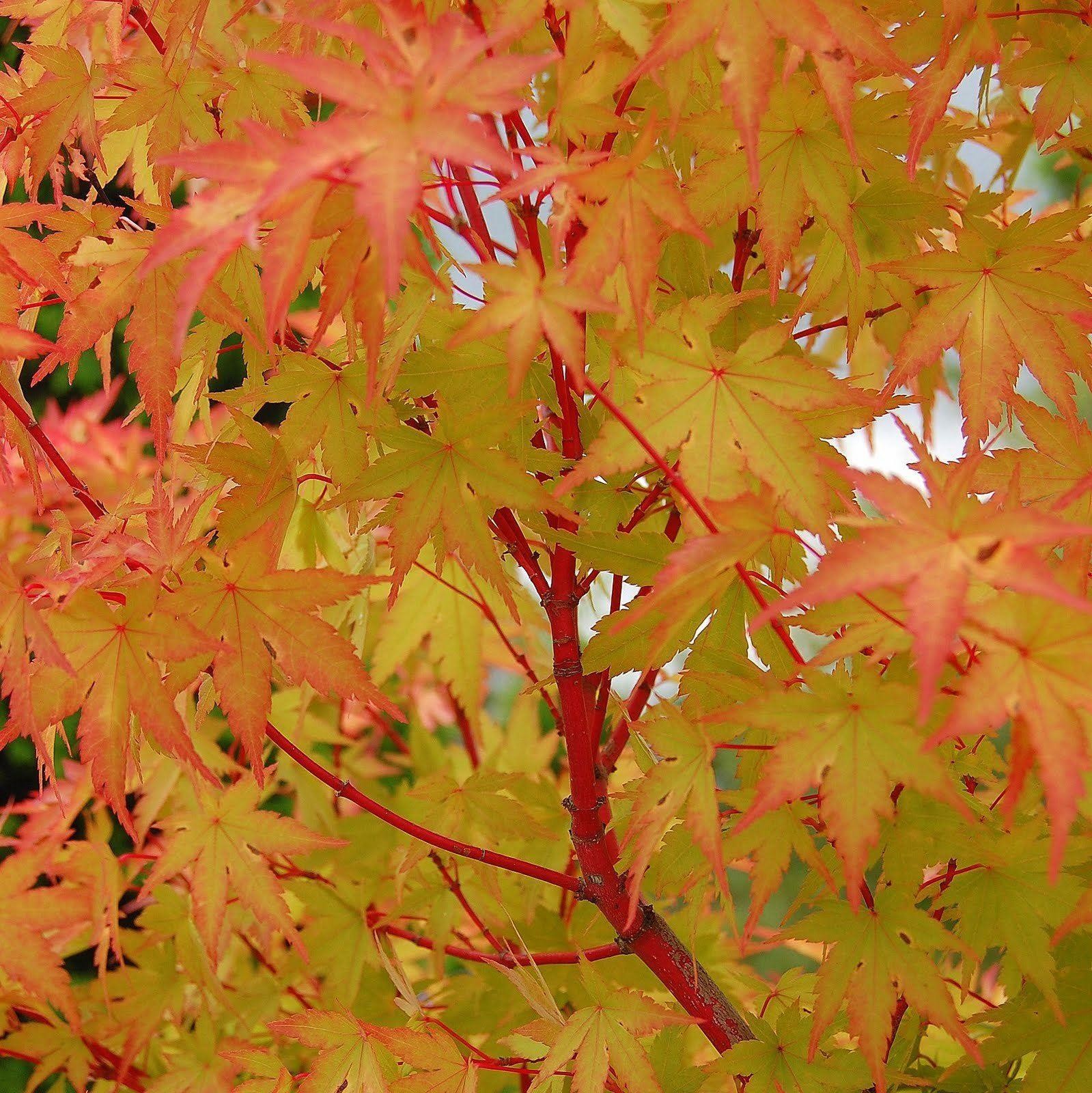
SPECIAL DEAL Acer palmatum Sango Kaku Coral Bark Maple Garden Plants
Acer palmatum 'Sango Kaku' is known commonly as Coral Bark Japanese Maple in reference to both its origin and notable bark color. Planting and Care Instructions. Plant Coral Bark Japanese Maple in slightly acidic soil in an area that receives full sun to partial shade. Note that new foliage can be scorched by the summer heat, especially if.
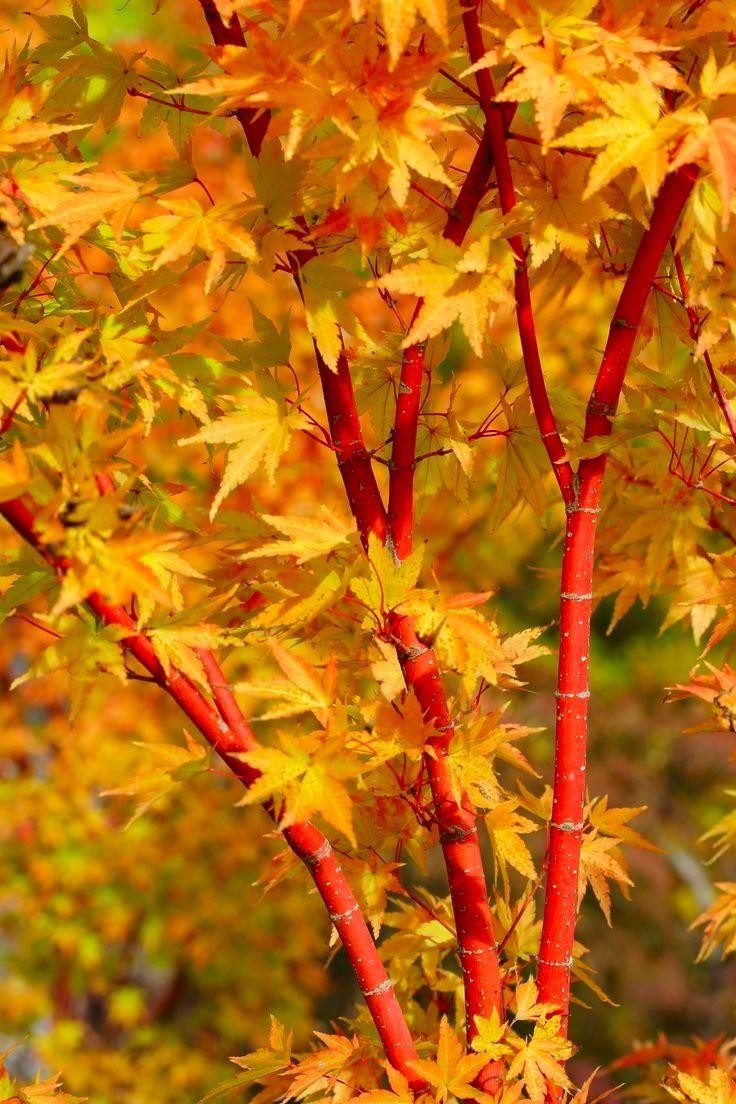
Acer palmatum Sango Kaku Coral Bark Maple Large Specimen
Acer palmatum, commonly called Japanese maple, is a deciduous shrub or small tree that typically grows to 10-25' (infrequently to 40') tall. It is native to Japan, Korea and China. General plant form is rounded to broad-rounded, often with low branching. Each palmate green leaf (2-5" long) has 5 or 7 but less frequently 9 pointed toothed lobes.
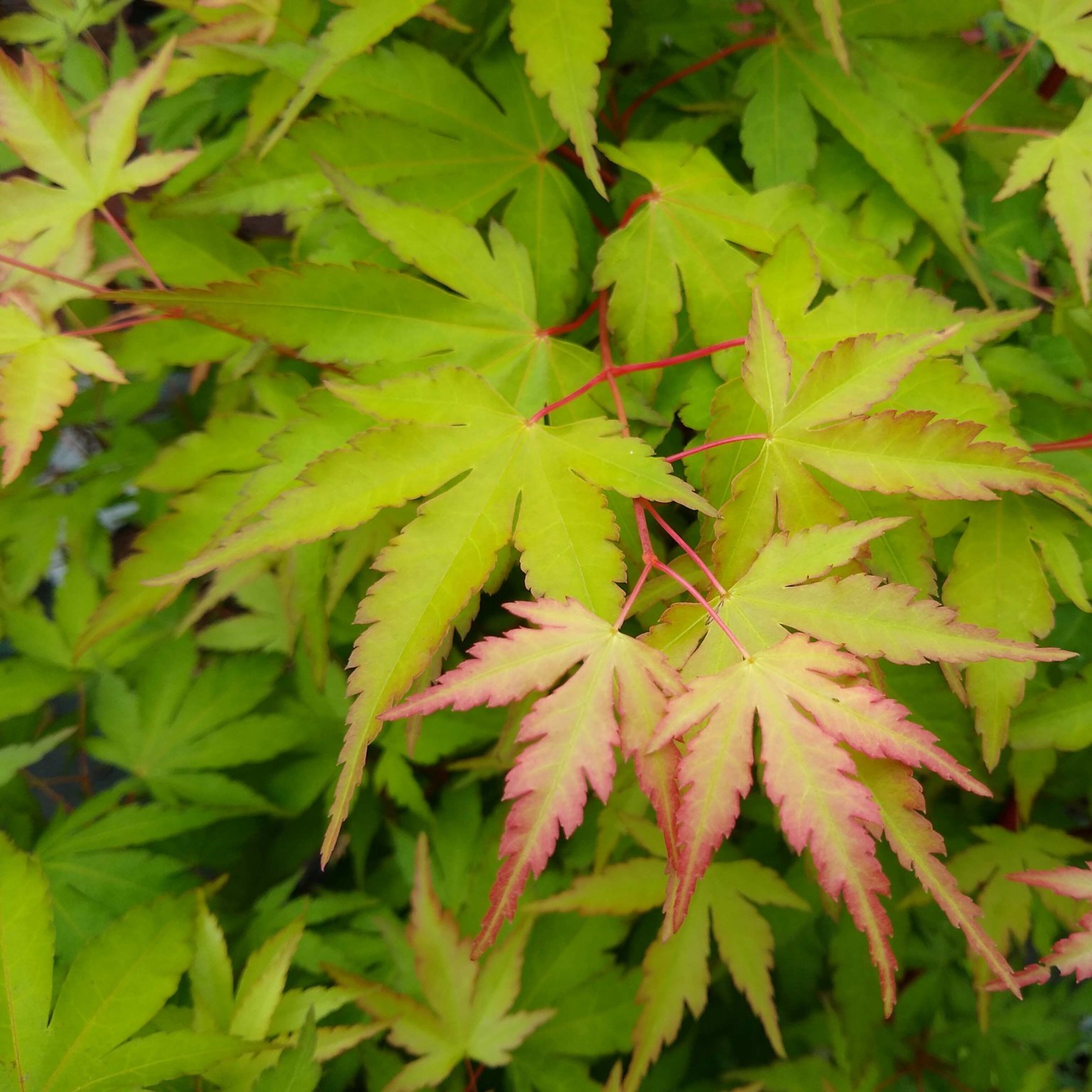
Acer palmatum 'Sango Kaku' Western Star Nurseries
One spectacular tree that fills this role that will please 365 days a year is the coral bark maple oAcer palmatum 'Sango-kaku'. The coral bark maple is a slow-growing, medium-sized Japanese maple with beautiful aesthetic qualities that make it prized for landscape use. During the spring and summer, its foliage is a light yellow to almost neon.

Acer palmatum 'Sangokaku' Acer Palmatum, Red Peppercorn, Gardens, Patio
Acer palmatum 'Sango kaku' is popular for its flaming, coral-red bark that stands out against drifts of snow in winter. The leaves emerge in spring with a flush of bright, yellow-orange and change to soft green for summer, which provides a sharp contrast to the glowing, coral bark. Bright golden fall color is a flashy effect too.

Acer palmatum 'Sangokaku' (Fächerahorn) kaufen
Looking For Acer Palmatum Sango-kaku? We Have Almost Everything On eBay. Fast and Free Shipping On Many Items You Love On eBay.
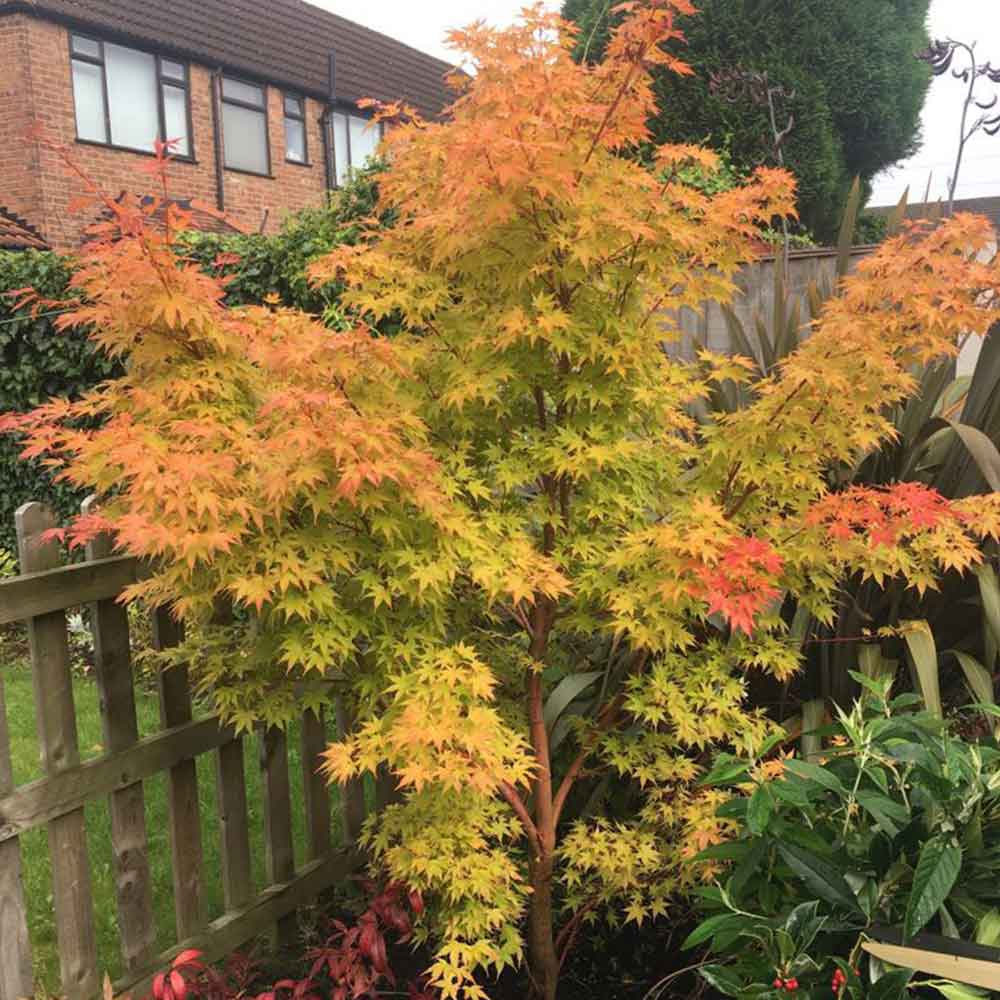
Buy Acer Palmatum SangoKaku J Parker Dutch Bulbs
Acer palmatum 'Sango-kaku' is attractive throughout the year: in spring the leaves are a lively pinkish green, turning a rich green in summer and then canary yellow with orange highlights in autumn. It also makes a fine winter feature, with the bark on all its younger shoots and branches a conspicuous coral red. The Royal Horticultural Society has given it the prestigious Award of Garden Merit.

Acer palmatum 'Sangokaku' Express Garden Shop
In hotter climates, it is also ideal to provide 'Sango kaku' with a little afternoon shade to avoid burning. Acer palmatum 'Sango kaku' is a tall and slender growing Japanese maple with a fast growth rate. 'Sango kaku' will typically reach about 16 to 18 feet tall in 10 years. This is what we refer to as its mature size.

Acer 'Senkaki/Coral Bark' Japanese Maple 8" Pot Hello Hello Plants & Garden Supplies
coral-bark maple. 'Sango-kaku' is a large deciduous shrub or small tree to 6m, with coral-red young branches bearing 5-lobed leaves which open pinkish-yellow, becoming green in summer and yellow in autumn. Flowers small, reddish.
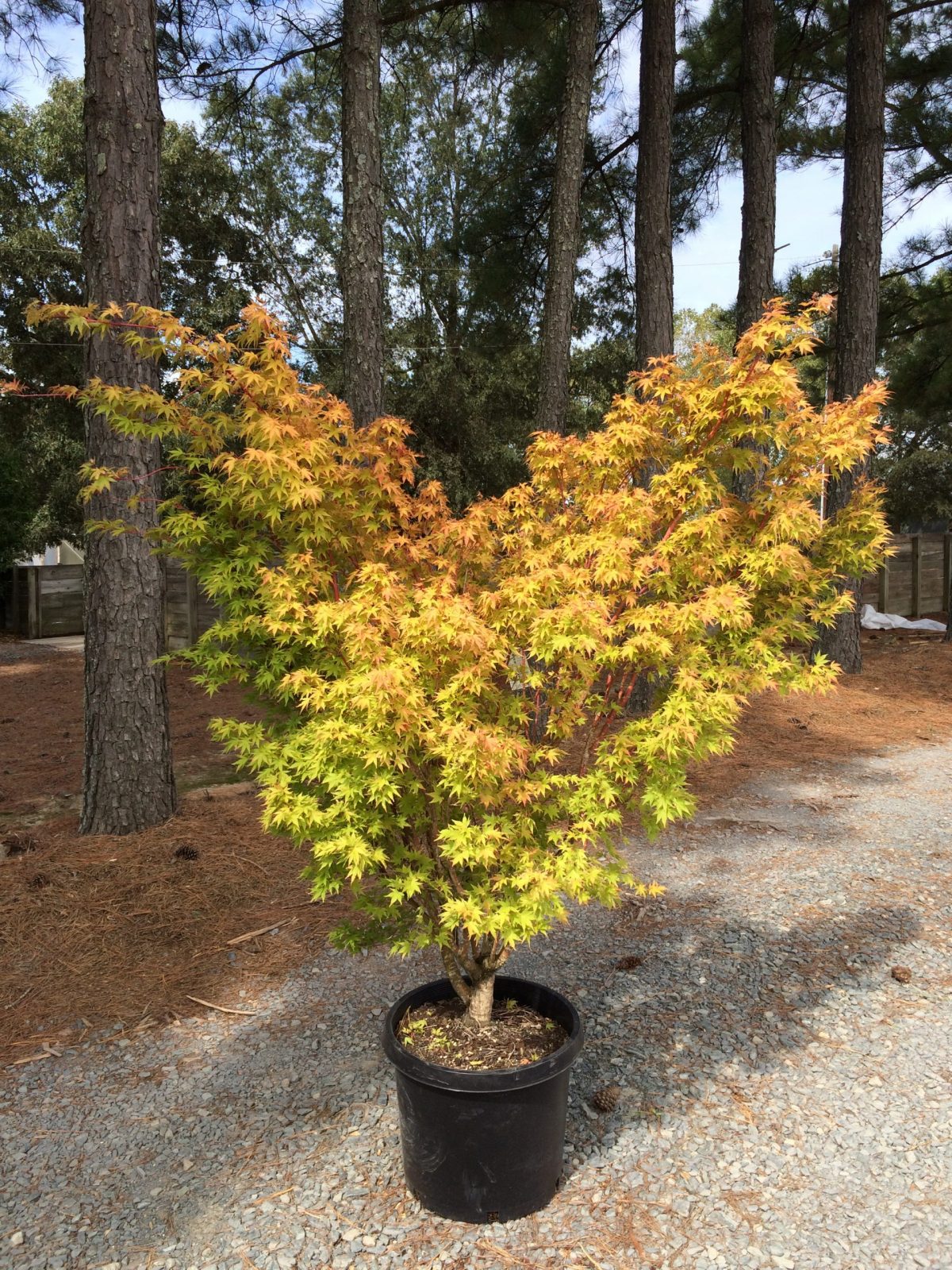
Japanese Maple Coral Bark (Acer palmatum ‘Sangokaku’) Latham's Nursery
Coral Bark Japanese Maple is a deciduous tree known for its vibrant coral-red bark and attractive, palmate leaves. The young bark is a vibrant coral-red color, which is particularly striking in the winter against a snowy backdrop. The leaves are palmate (hand-shaped) with 5-7 lobes, and they are light green in the sum.

Acer Sango Kaku. Trees for Sale UK. Letsgoplanting.co.uk
Coral Bark Maple, Japanese Maple 'Sango-Kaku', Acer palmatum 'Senkaki', Acer palmatum var. dissectum 'Sango-Kaku'. Noted for its showy coral bark and fall color, award-winning Acer palmatum 'Sango-kaku' (Coral-Bark Maple) is a large deciduous shrub or small tree that is highly desirable. In the fall, the delicate 5-lobed leaves, which open.

Acer Palmatum Plant Sangokaku Trees Shrubs Hedging Gardening
Description. Sango kaku is highly regarded for its outstanding, almost fluorescent coral bark, this upright, spreading Japanese maple produces a fabulous show all four seasons. Red margins decorate the yellow-green spring leaves that gradually change to bright green in summer.

Acer palmatum Sango Kaku Coral Bark Maple Large 60100cm Specimen
Acer palmatum 'Sango kaku' Coral Bark Sango kaku Japanese Maple Zones 6-9 'Sango kaku' is a beautiful large coral bark Japanese maple. This Japanese maple tree has a spectacular bright red bark that stands out in any time of the year! The leaf of 'Sango kaku' in the early spring is a vibrant lush green and new growth often has light.
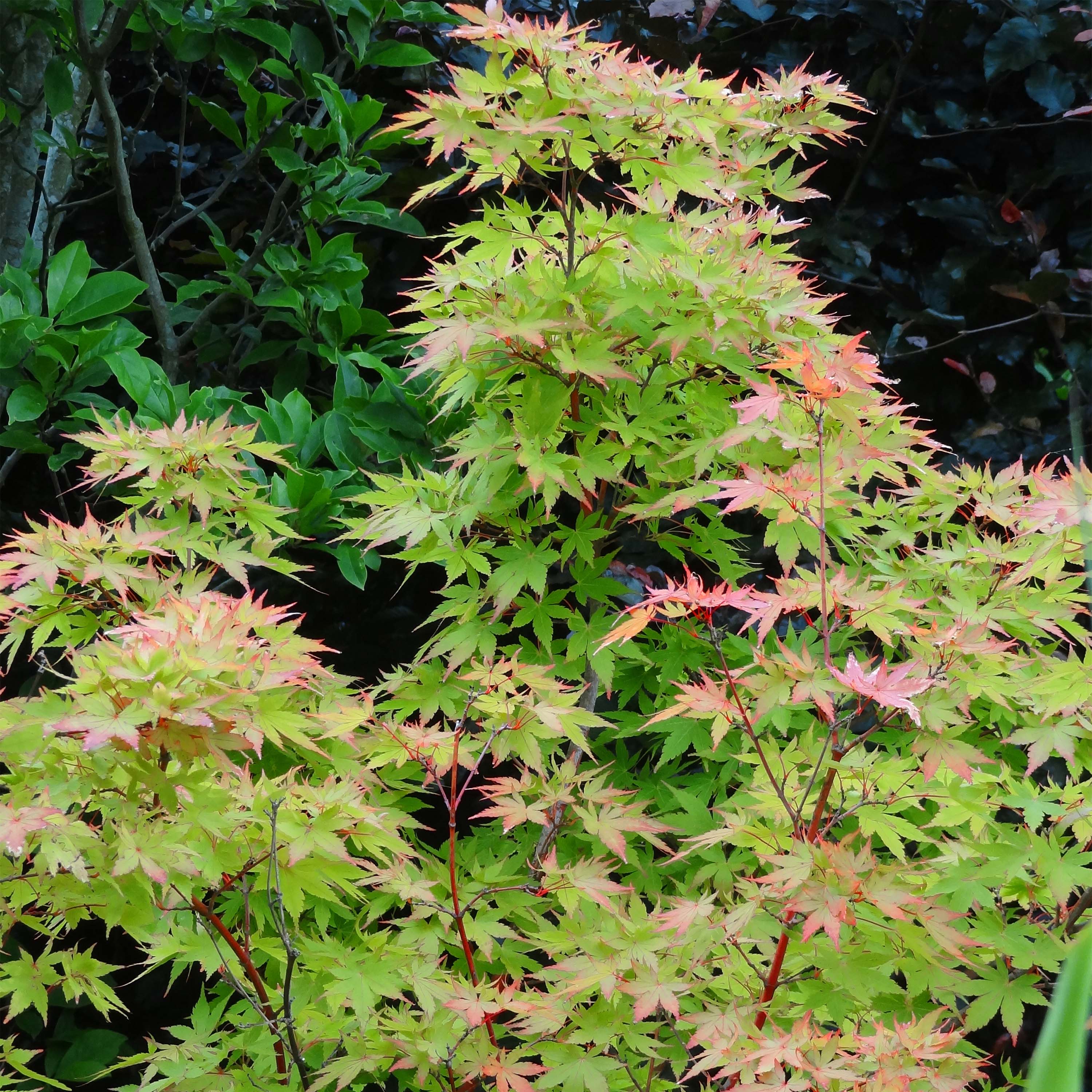
Érable du Japon Sangokaku ou Senkaki Acer palmatum à bois rouge
Size - 1 Gallon. Acer palmatum 'Sango Kaku' Coral Bark Japanese Maple has bright coral red colored bark in winter which gives this tree a fourth season of interest more than most other Japanese maples. The foliage is lime green in spring darkening as summer temperatures warm. The fall color is a stunning golden yellow with hints of orange.
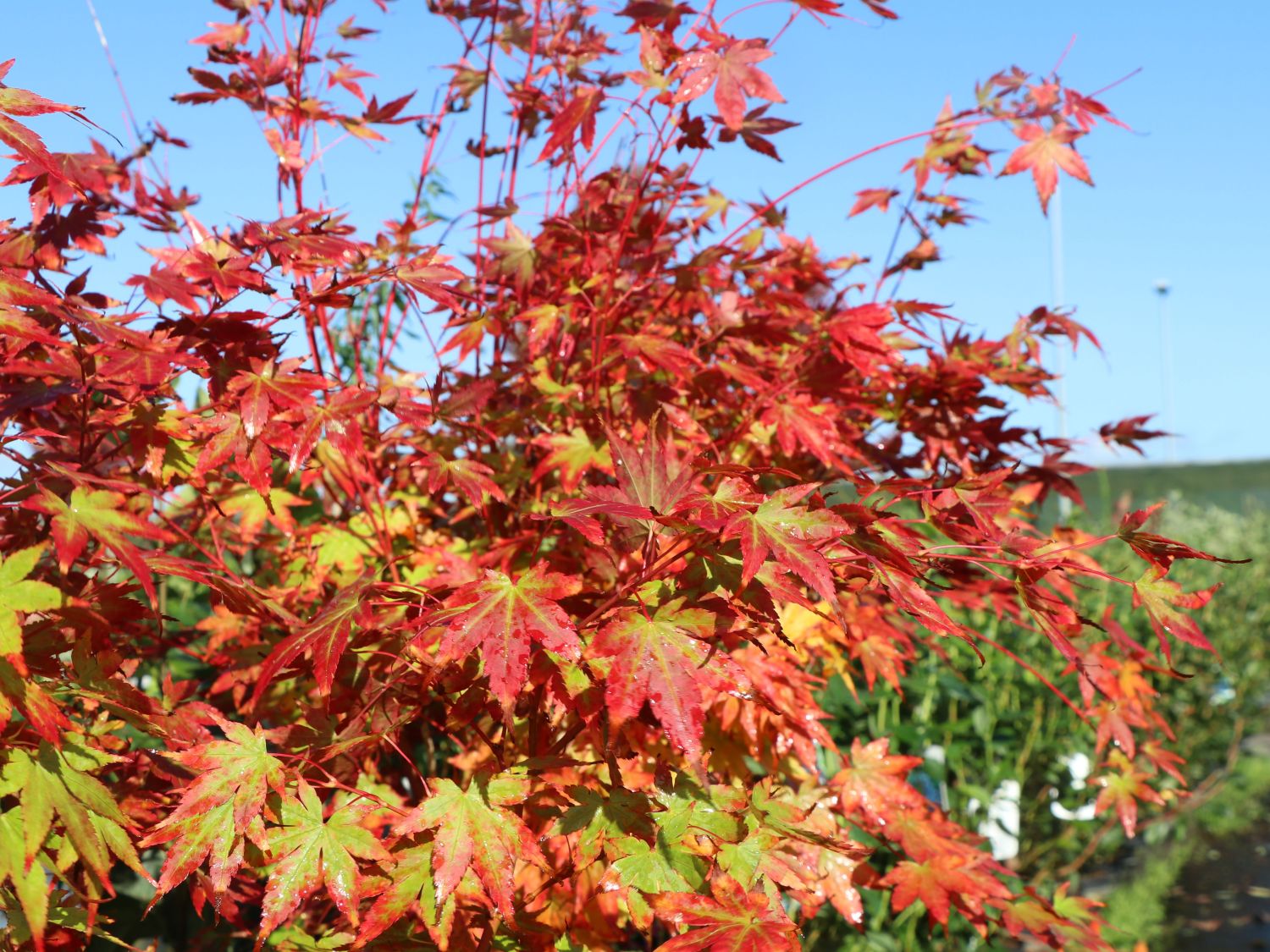
Fächerahorn 'Sangokaku' Acer palmatum 'Sangokaku' Baumschule Horstmann
The Japanese maple cultivar 'Sango Kaku', often referred to as Coral bark maple, is generally one of the most prized of all of the upright palmate types for its winter interest. The bark on new twigs turns bright coral red (almost fluorescent) after the leaves fall. In areas west of the Cascade Mountains, this cultivar is one of the most.

Acer palmatum ‘Sangokaku' (Coral Bark Japanese Maple) japanesegardening Coral bark japanese
Acer palmatum 'Sango-kaku'. A small to medium sized, vase shaped deciduous tree. It can reach up to 25' in height and up to 20' wide, but is fairly slow growing. This cultivar is prized for the color of its bark, especially in winter when its branches are bare. The brightest color is on new growth, so tends to be concentrated on the top.